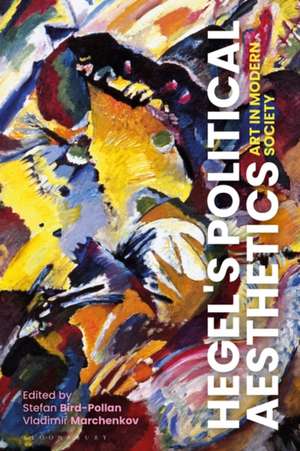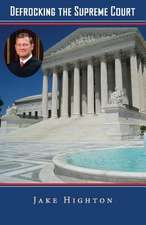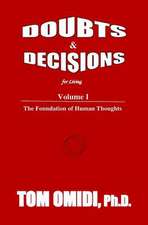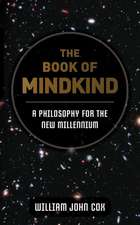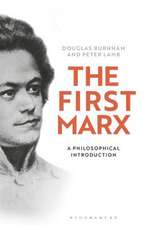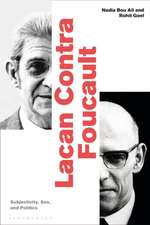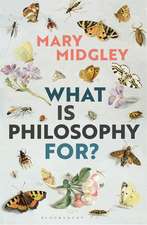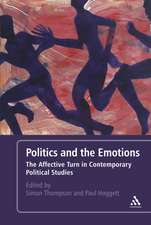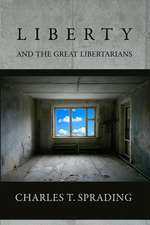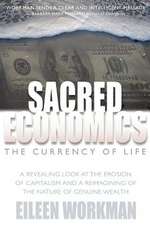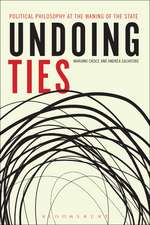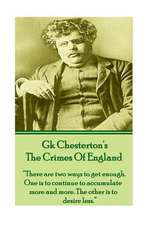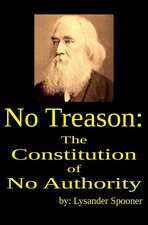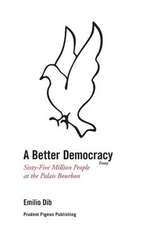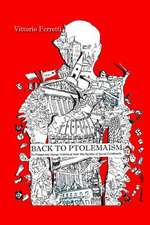Hegel's Political Aesthetics: Art in Modern Society
Editat de Stefan Bird-Pollan, Vladimir Marchenkoven Limba Engleză Paperback – 20 oct 2021
| Toate formatele și edițiile | Preț | Express |
|---|---|---|
| Paperback (1) | 217.62 lei 6-8 săpt. | |
| Bloomsbury Publishing – 20 oct 2021 | 217.62 lei 6-8 săpt. | |
| Hardback (1) | 598.35 lei 6-8 săpt. | |
| Bloomsbury Publishing – 10 iun 2020 | 598.35 lei 6-8 săpt. |
Preț: 217.62 lei
Nou
Puncte Express: 326
Preț estimativ în valută:
41.64€ • 43.53$ • 35.19£
41.64€ • 43.53$ • 35.19£
Carte tipărită la comandă
Livrare economică 07-21 martie
Preluare comenzi: 021 569.72.76
Specificații
ISBN-13: 9781350279179
ISBN-10: 135027917X
Pagini: 248
Dimensiuni: 156 x 234 mm
Greutate: 0.35 kg
Editura: Bloomsbury Publishing
Colecția Bloomsbury Academic
Locul publicării:London, United Kingdom
ISBN-10: 135027917X
Pagini: 248
Dimensiuni: 156 x 234 mm
Greutate: 0.35 kg
Editura: Bloomsbury Publishing
Colecția Bloomsbury Academic
Locul publicării:London, United Kingdom
Caracteristici
Provides an up-to-date take on Hegel's aesthetic theory by taking into account the new edition of Hegel's Lectures
Notă biografică
Stefan Bird-Pollan is Associate Professor in Philosophy, Social Theory and International Film Studies, University of Kentucky, USAVladimir Marchenkov is Professor of Aesthetics and Theory, Ohio University, USA
Cuprins
Introduction by the editors, Stefan Bird-Pollan and Vladimir Marchenkov Part I: Art's Conribution to Modern Ethical LifeChapter 1: Philip T. Grier, "On Art and Community: Intersections of Hegel's Aesthetics and Philosophy of Religion"Chapter 2: Mark Aznauer, "Hegel on Aesthetic Reconciliation" Chapter 3: Timothy L. Brownlee, "Bildung and the Novel in Hegel's Lectures on Aesthetics"Chapter 4: David Ciavatta, "Beauty as Freedom" Part II: The End of Art and the Loss of Art's AuthorityChapter 5: John Russon: "Romantic Art and Modernity"Chapter 6: Shannon Hoff: "At Home and Homeless in the Human World: Art and Freedom in Hegel's Aesthetics"Chapter 7: Olga Lyanda-Geller, "Hegel's Symbol and Symbolic Art: Revisiting Ambiguity?" Part III: Ways of Thinking Beyond Hegel's Analysis of Art's Role in SocietyChapter 8: Kathleen Eamon, "Super/Sensible Remains in Art and Politics: Hegel and Jacob Lawrence's The Migration Series."Chapter 9: Vladimir Marchenkov, "The Dialectic of Morality and Art in Hegel's Aesthetics"Chapter 10: Stefan Bird-Pollan, "Overcoming the End of Art Thesis; the Case for Film" Chapter 11: Georg Bertram, "Hegel's Conception of Modern Art - A Re-actualization"
Recenzii
Dedicated to exploring art in modern Western society, this excellent volume does indeed both instruct and delight: it instructs with lucid accounts of Hegel's work on art and will surely delight those seeking a deeper understanding of Hegel's aesthetic and its enduring relevance.
This book ranges widely among Hegel's historical, theoretical, and political pronouncements about art, uniting them beautifully under the innovative theme of political aesthetics. The essays are invigorating and fresh, showing how much Hegel's synthetic approach to art can illuminate chronic dilemmas about art and its place in our political and moral lives. A wonderful contribution to new scholarship on Hegel's philosophy of art.
Modern culture continues to be riven by the question of the meaning of the arts: are the arts bound by the demands of morality and the urgencies of political strife; or are the arts somehow autonomous, somehow posed in an aesthetic space with its own inner logic, historical trajectory, and normative demands? In this splendid and always engaging collection of essays, each of the authors critically reflects on Hegel's effort to demonstrate the always extra-aesthetic significance of the arts that are nonetheless possessed of a defining aesthetic meaning as sensuous particulars. The very best of these uniformly excellent essays are incisive additions to both our understanding of Hegel and contemporary cultural debates. Belongs on the shelf of every student of Hegel.
This book ranges widely among Hegel's historical, theoretical, and political pronouncements about art, uniting them beautifully under the innovative theme of political aesthetics. The essays are invigorating and fresh, showing how much Hegel's synthetic approach to art can illuminate chronic dilemmas about art and its place in our political and moral lives. A wonderful contribution to new scholarship on Hegel's philosophy of art.
Modern culture continues to be riven by the question of the meaning of the arts: are the arts bound by the demands of morality and the urgencies of political strife; or are the arts somehow autonomous, somehow posed in an aesthetic space with its own inner logic, historical trajectory, and normative demands? In this splendid and always engaging collection of essays, each of the authors critically reflects on Hegel's effort to demonstrate the always extra-aesthetic significance of the arts that are nonetheless possessed of a defining aesthetic meaning as sensuous particulars. The very best of these uniformly excellent essays are incisive additions to both our understanding of Hegel and contemporary cultural debates. Belongs on the shelf of every student of Hegel.
